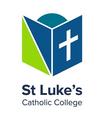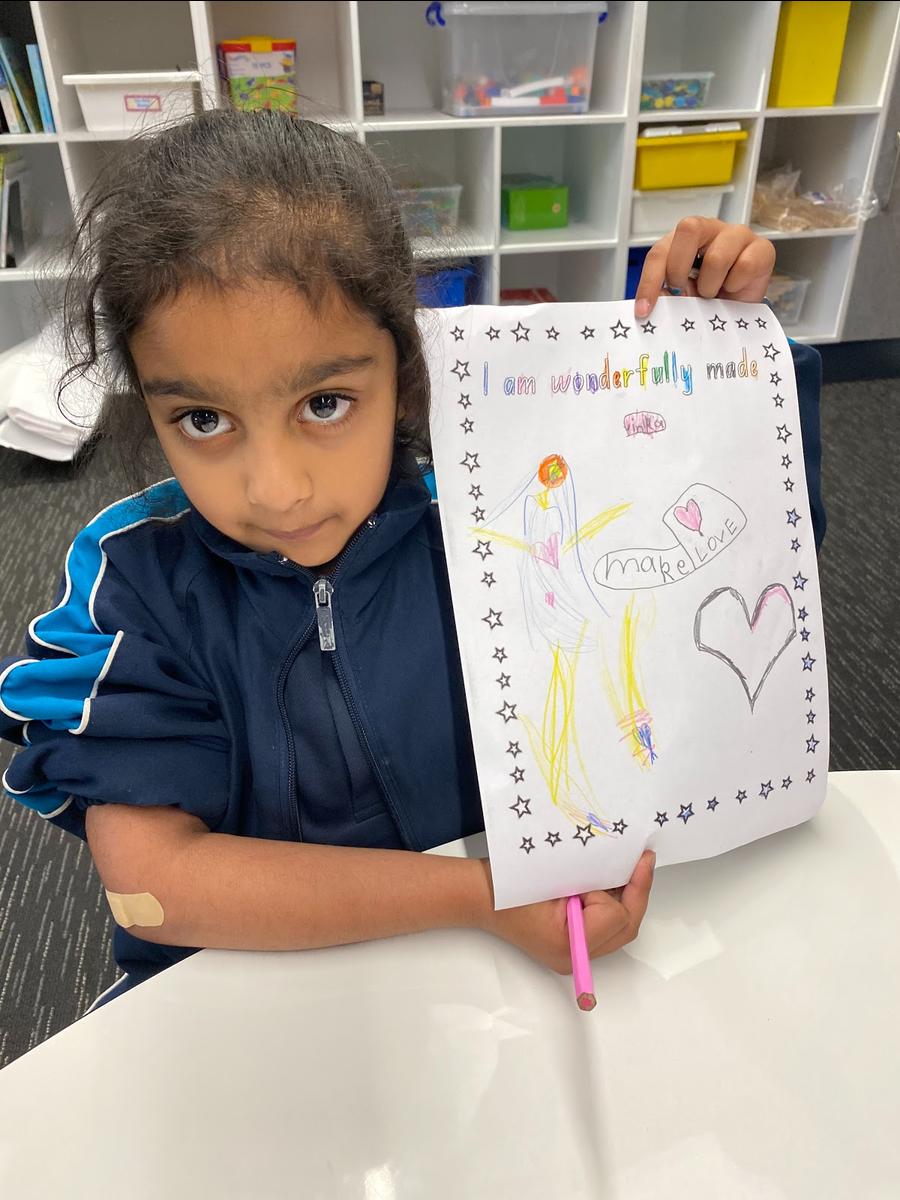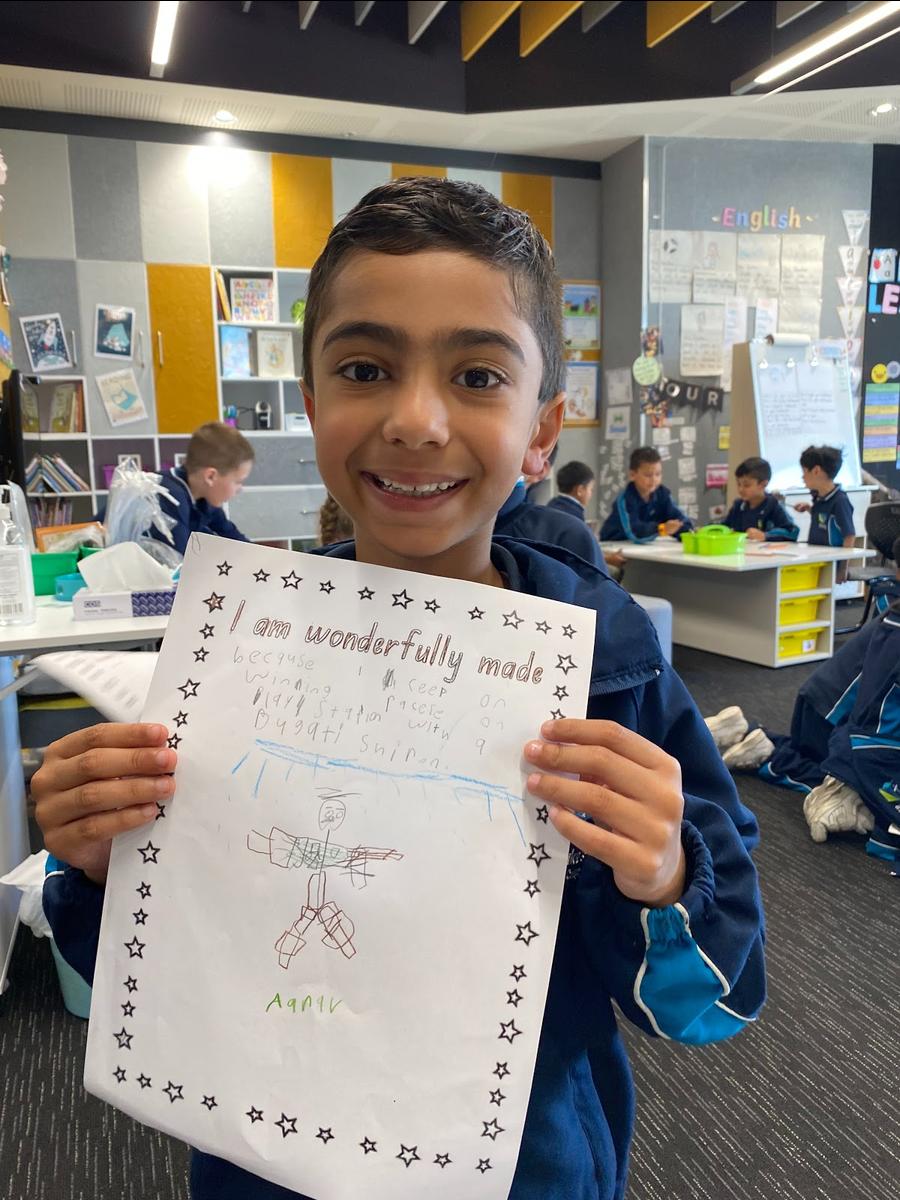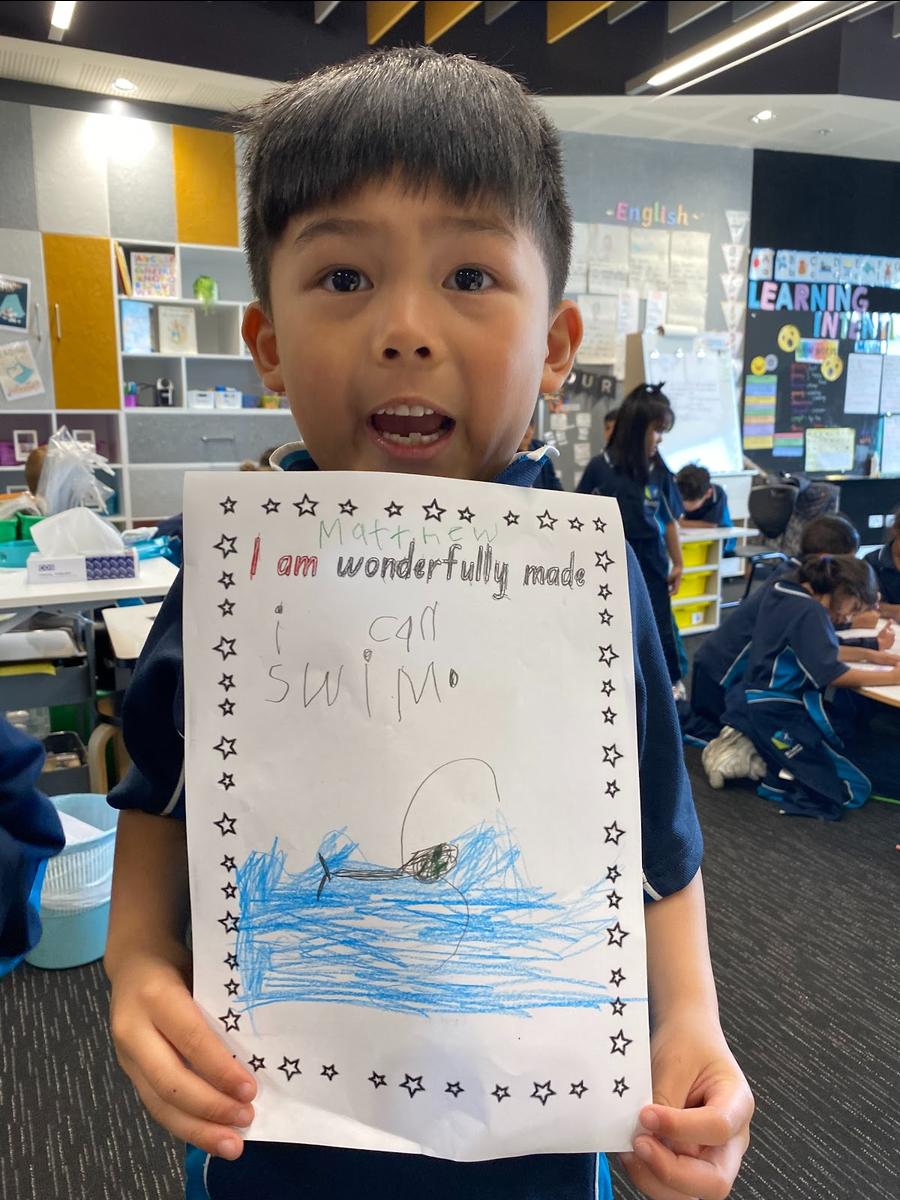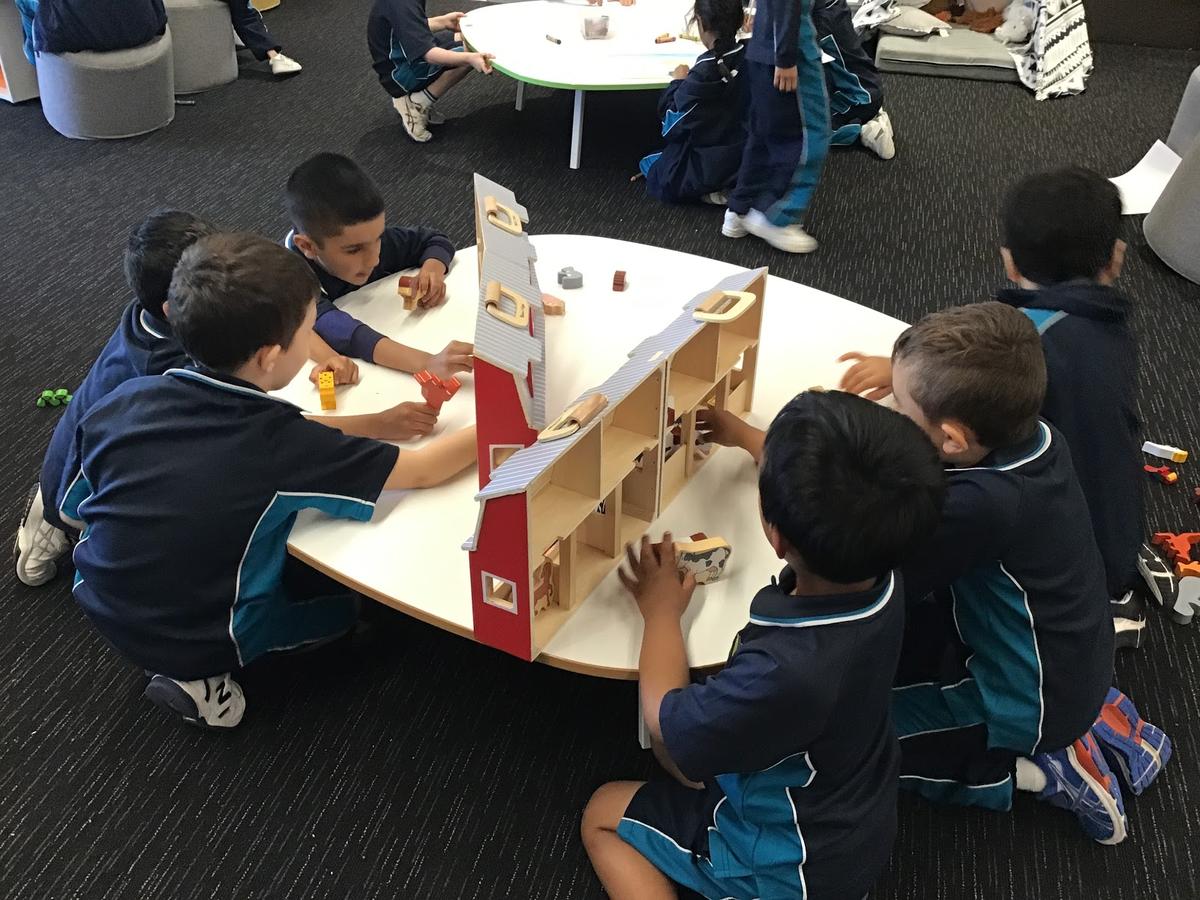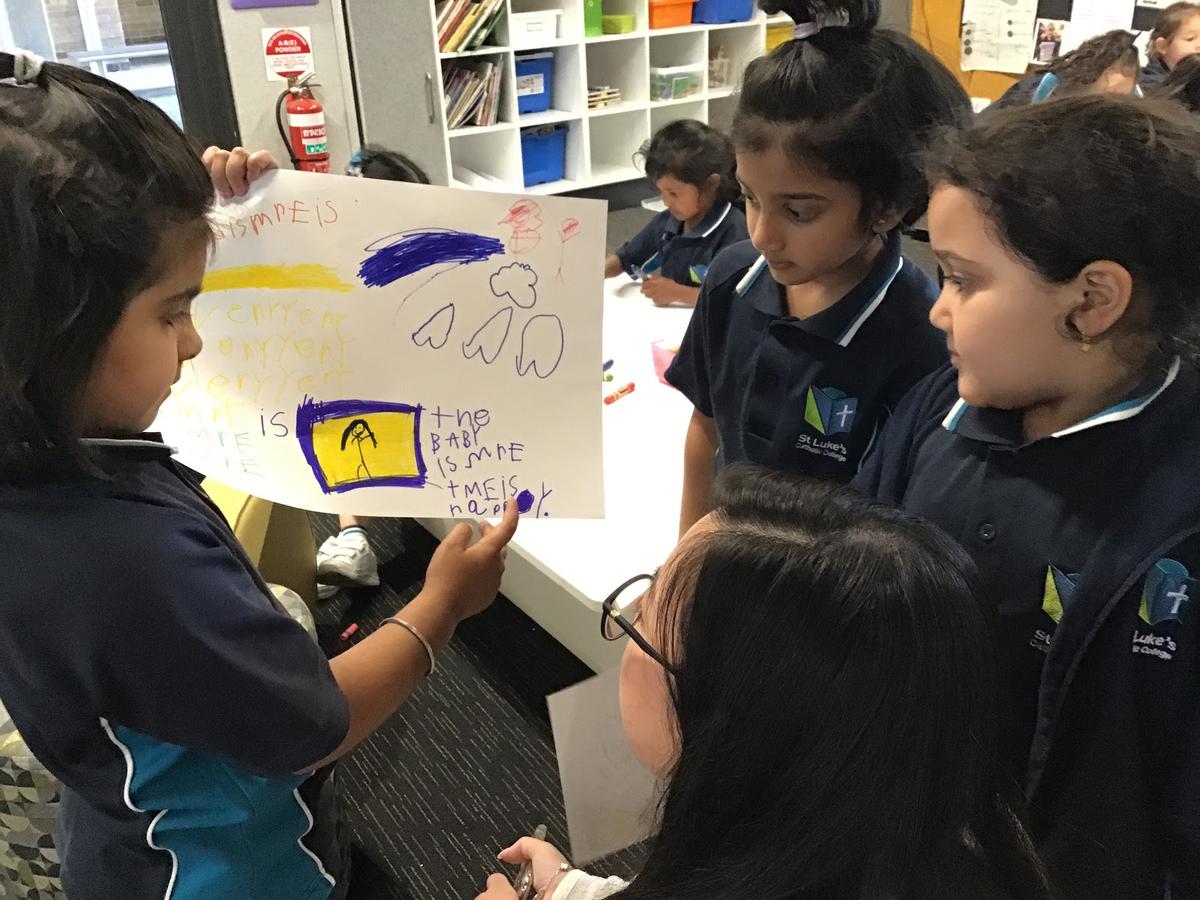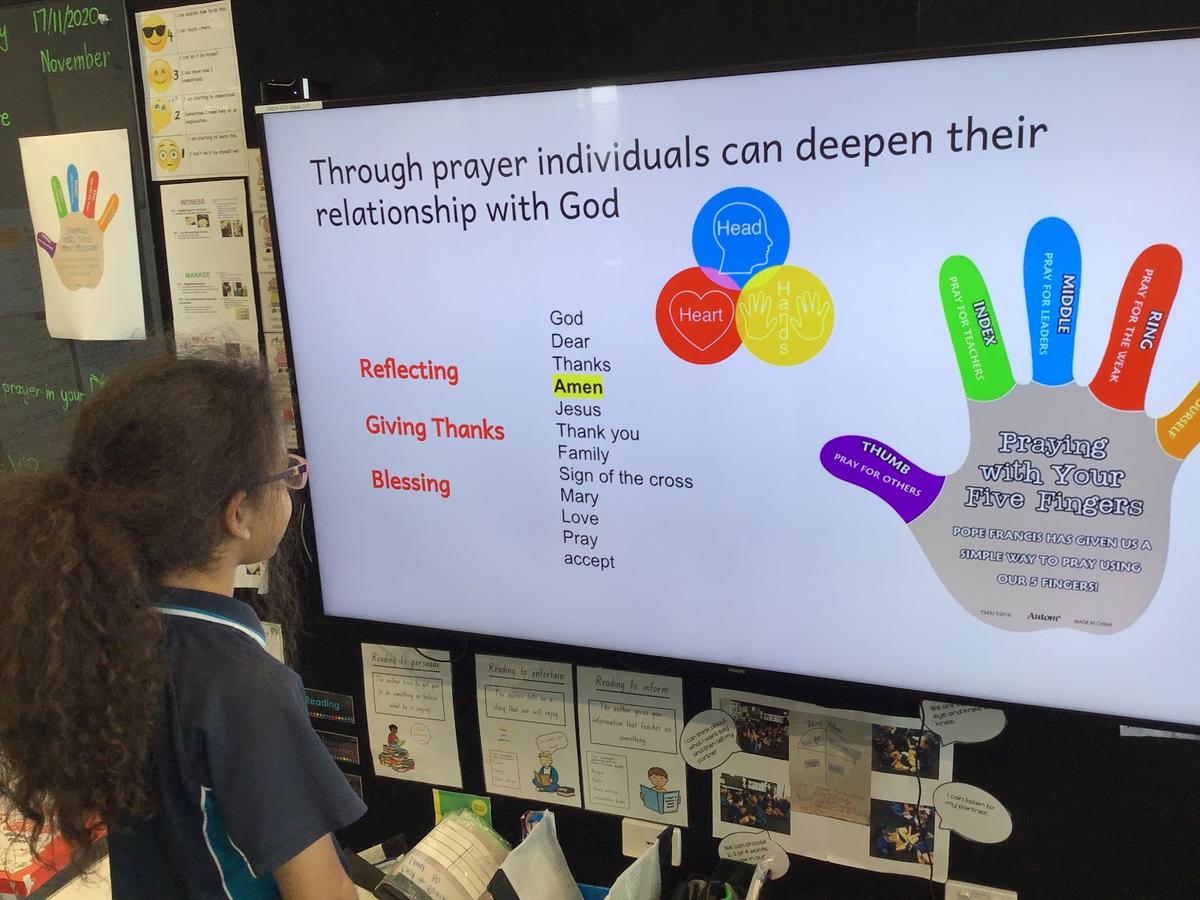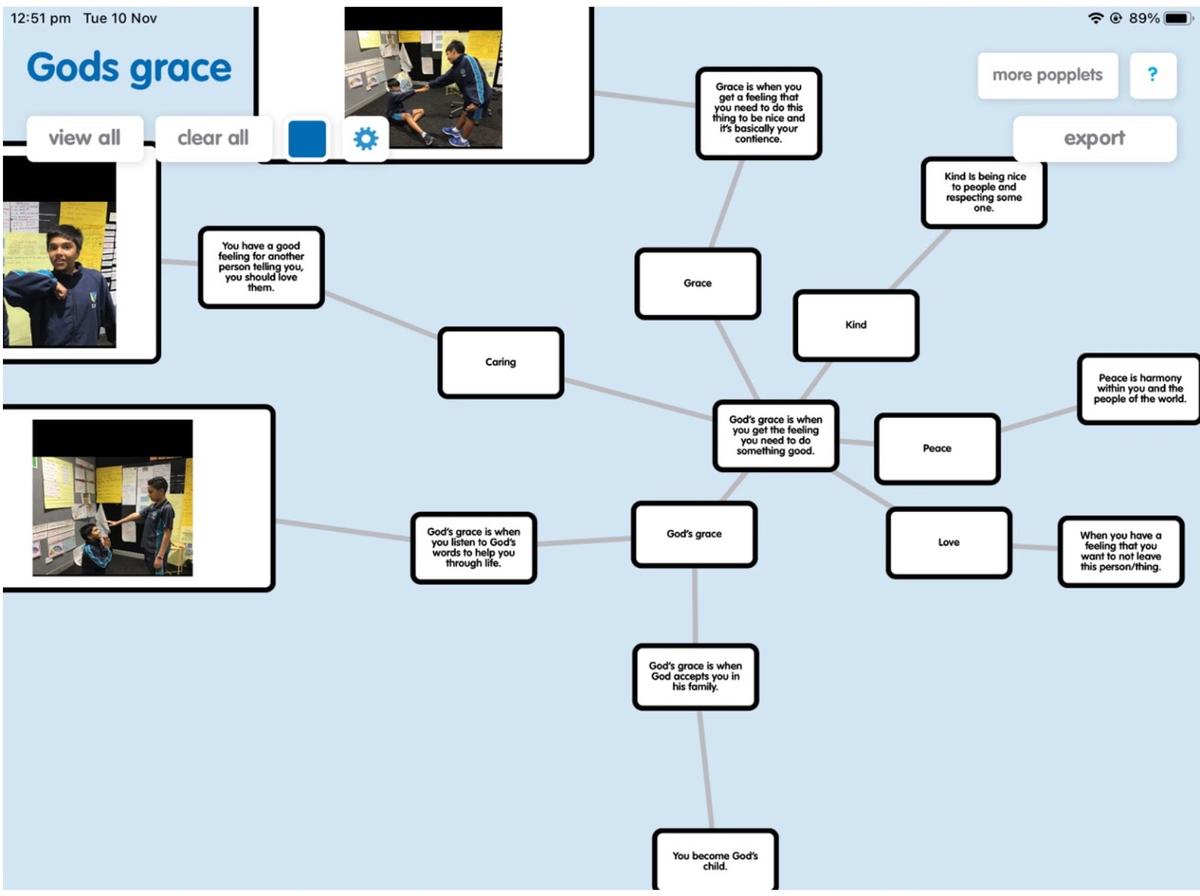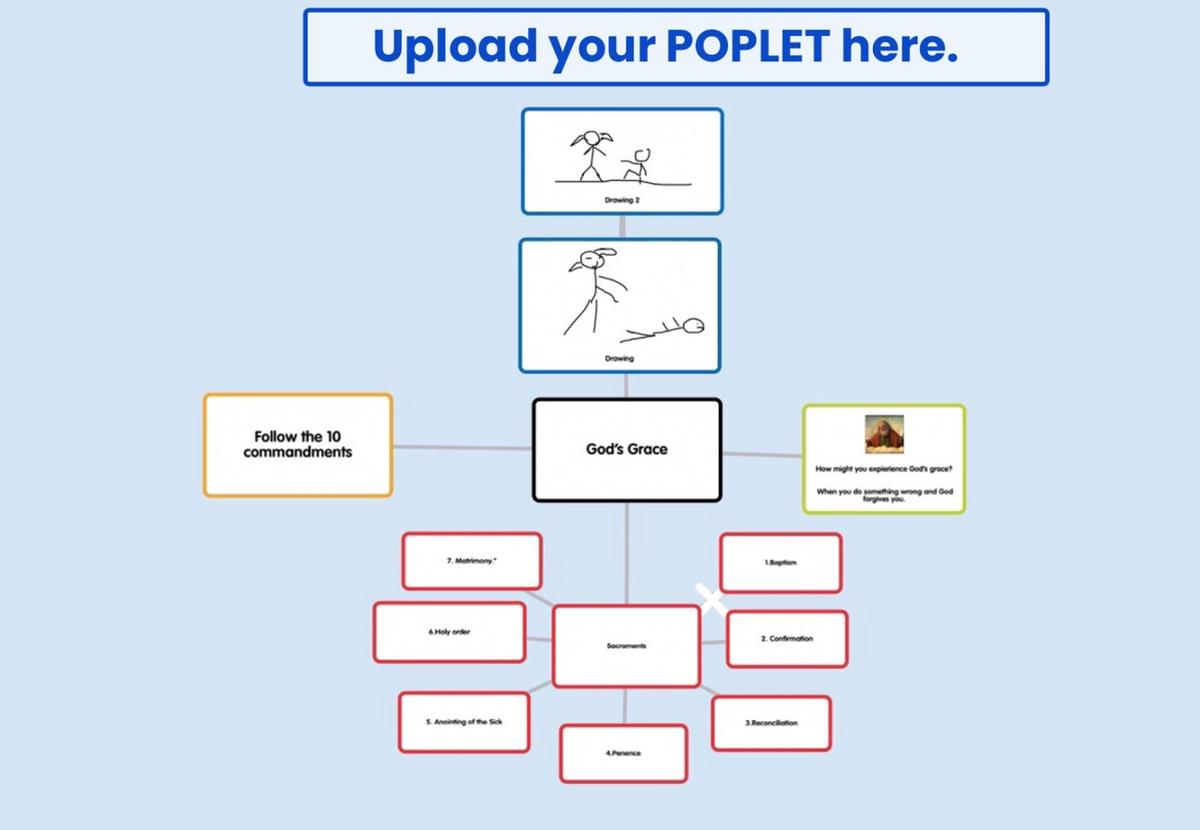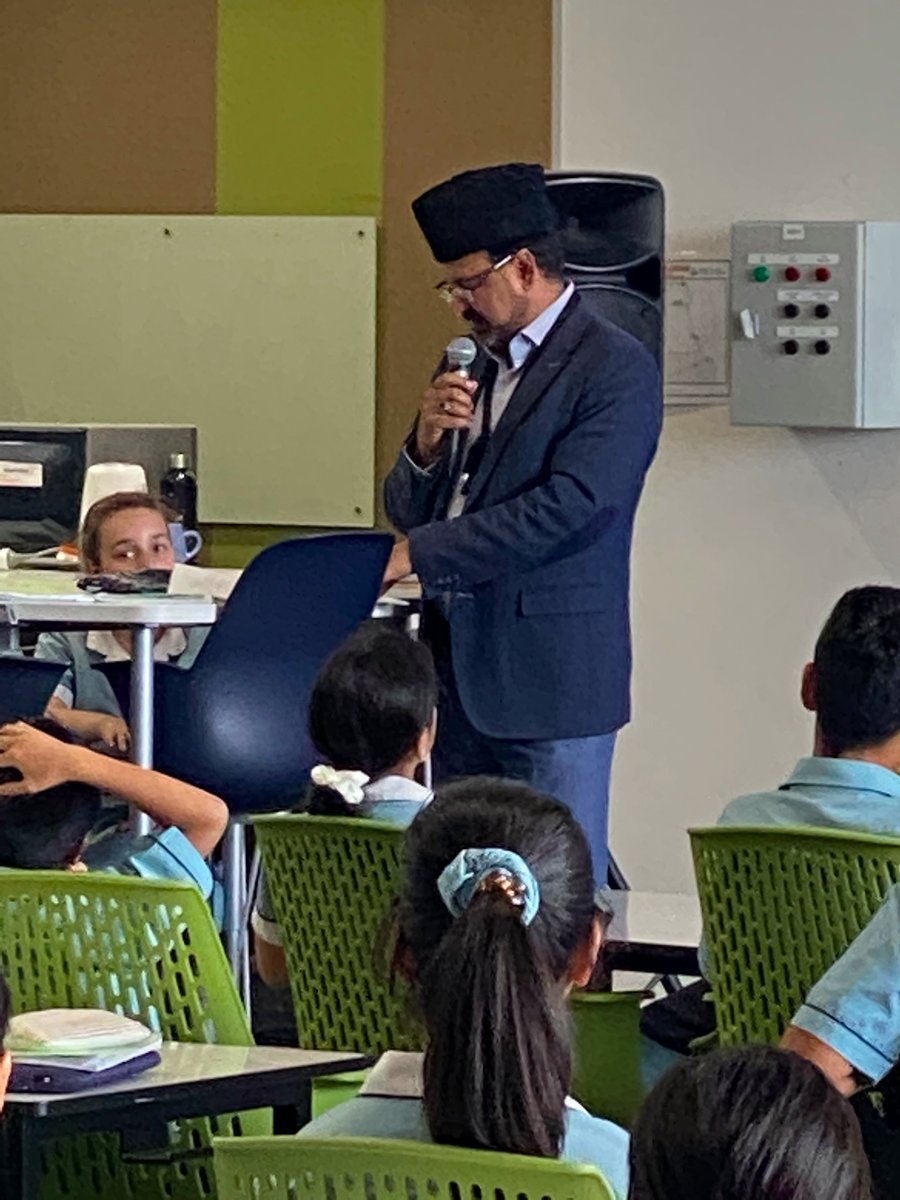Mission

Here are some highlights of the students faith journey from Early Stage 1 to Stage 5 this term…
Early Stage One -
Throughout the term students have been exploring and unpacking the driving question “How is God the Father present to all in our world?” where they shared their understanding of belonging to God’s family and being special through drawing pictures and words to explain how they are wonderfully made…
The students also shared their understanding of the bible story “The Birth of Jesus” (Luke 2: 4-20) where they retold the story using their own words and explained what God was trying to teach us through the story. Finally they had to think about how they could use that message in their own life and show how they can be a gift from God. A wide range of choices was provided for the students and they chose the best method for them to retell the story…
Stage One -
The excitement continued throughout this term as the students continued to learn about their driving question “What is prayer?” they began with sharing their understanding of the bible story “The BIrth Of Jesus is Announced” (Luke 1:26-38) by retelling the story with detail in response to prompting questions of who, where and what. Then identifying what God’s message is and then how they can apply that to our own lives. Part of this process was the brainstorming of how students could choose to share their information and understanding of the Holy Scripture...
Adding onto this learning we reflected on how we can use our head, heart and hands in our daily lives, when we pray and have a conversation with God and finally work together to write our own special prayers to make a “Wall of Prayers”...
Stage Two -
This term the students in Stage 2 have been reflecting on and exploring the driving question of "How can we be signs and symbols of God's grace in our world?" They began by unpacking the Bible story “The Promise of the Holy Spirit” (John 14:15-31) where they were able to retell the story in the correct order using the prompts of - When, where, what, who. Next they identified what God was trying to teach them through the story and naming ways that the Holy Spirit is in their own life. Then they explained how they could apply God’s message to their own life.
Students then explored the question ‘What is God’s Grace?’ and after discussing, reading and viewing a variety of sources in groups of 3 worked together to brainstorm other ways that we can receive God’s Grace if we haven’t received the Sacraments. Using the app ‘Popplet’ students recorded their information before sharing it on Seesaw.
Stage Three
Students have been exploring ecumenical and interfaith diversities to recognise and appreciate the implications of the teachings of Jesus on these diversities. They participated in the Stage Liturgy and prayed for an enhanced interfaith dialogue in the society. Visitors from the Islamic faith and the Sikh faith helped them understand more about how efficient interfaith dialogue can be initiated.
Stage Four
Students have been working to respond to the driving question, "Is it right to fight for peace?'. They delved deeper to appreciate the Eucharist as the Sacrament of life. Deacon Tony, the Pastoral Leader of the Faith Community visited their classes to help them understand how the Eucharist can be the arbiter of Peace. He also emphasised the role intentional faith communities play to promote peace in the society. They co-facilitated the Stage Liturgy with teachers to pray for peace in the society.
Following you will find a couple of pieces of student work showing their understanding as the Eucharist and its different meanings.
“The three meanings of the word ‘Eucharist’ are memorial, sacrifice and thanksgiving, which serve as the
basis of what the Eucharist embodies, and provides an opportunity to promote peace. The Eucharist is an
important part of Catholics’ lives because it allows people to remember Christ’s sacrifice for humankind,
and to revitalise themselves spiritually. In a Catholic Mass, the Eucharist is remembered as the body and
blood of Christ; people go and receive the Eucharist once the mystery of transubstantiation has occurred, in
which bread is transformed to Jesus’s body, and wine converts to Jesus’s blood, in order to be consumed as
a thankful memorial of his sacrifice. This links to the idea that people receive the blood and body of Christ
and subsequently revitalise themselves spiritually, as a memorial of Christ’s sacrifice, to give thanks to
him, because that is an outcome of receiving the Eucharist. The Eucharist is an important celebration
because it provides a source of thanksgiving for Jesus’s sacrifice via the consumption of his body and
blood, it allows Catholics to spread the good news with others, once attending Mass, and it allows peace,
both inner and external, to be achieved. This also provides a source of peace, as it allows participants of the
Eucharist to spread the good news, and subsequently allow others a chance to participate in the Eucharist
to express thanks, then further promote external peace via spiritually revitalising, via the participation in
the Eucharist, and the spreading of the good news; Pope John XXIII wrote Pacem in Terris, and, although
peace can be achieved via the Eucharist, Pacem in Terris contains that external peace can only be achieved
if inner peace is discovered first, which is what the Eucharist helps achieve. Therefore, the Eucharist
connects to peace by, once partaking in the consumption of the body and blood of Christ, spiritually
revitalising, conducive to inner peace, and by the Mass challenging people to spread the good news,
promoting external peace.” - Alex Coombes, Stage 4 Einsteins
“Jesus brings peace into the world through the Eucharist, when consuming the Eucharist it is an instrument to help spread human dignity and human flourishing. When we receive the body and blood of Christ we are called to be good Catholics which is through expressing dignity, flourishment, respect and love for others which are the values which hold extreme importance to me. Challenges which we face is oppression and discrimination. The sign of the peace which we do during mass signifies peace, this spiritual act symbolises that peace comes from Christ. The Eucharist is an arbiter of peace because when we consume the body and blood of Christ we are united with one another, when we are equal we are able to express peace to one another. As members of the St Luke’s community we can use the Eucharistic celebrations to promote internal and external peace within our community, the St Luke’s community through coming together as a community in times of need. We can make contributions to helping out the oppressed through honouring the dignity of people by providing them with needs, bring in food to help other families and love one another regardless of your sins.” - Lanna Deluna, Stage 4
Stage Five -
This term Stage 5 students have continued to go deeper into their learning cycle which has the driving question:
“ How can I love others even though their perspectives are different to mine? ”
Recently, students have looked at the importance of dialogue and encounter - which play a major role in understanding the perspectives of others. Students were required to explain the importance of Dialogue and Encounter. The following is a sample piece of work which shows the understanding students have been able to develop:
Dialogue is defined as a conversation where everyone is able to feel safe, understood and comfortable when voicing their opinions and thoughts. The purpose of it is to find meaning through each other’s lived experience, which allows us to grow and transform our relationship with others. For Dialogue to be successful there must be active listening on both ends of the conversation, how will people be able to understand what is happening without listening. This means that people also need to feel heard, they need to know that what they are saying is being acknowledged. In its entirety, people participating in the conversation need to feel safe and comfortable, otherwise, they may not be able to open up and say what’s on their mind.
Successful Dialogue leads to Encounter and can be seen in our everyday conversations with other people. By being able to talk to others and listen to what they are going through, we are able to successfully understand what is taking place. This is specifically seen in Viktor Frankle, who took it upon himself to talk to the people in the concentration camp and allow them to find ways to cope with the torture they were going through. In doing this, the people were able to see ‘Imago Dei’ in him, they were able to see the image of God. They were able to connect deeply with the people who were in the camp and become the voice for the voiceless. This helps challenge us to be more considerate to others, to be more understanding and to be more compassionate. We are called to be like Viktor Frankl and be the person who is able to have conversations with people. So that we are able to be dutiful Christians in the world who try their best to spread the image of God to others.
Therefore, Dialogue plays a significant role in an encounter as it allows us to see the sacredness of God in our daily lives and in our daily conversations. We are able to see Him in the simplest of things in our daily lives and through all of our conversations in which we try to connect with others more.
The moment of encounter is when dialogue is successful and we are able to see the person for who they truly are in the image of God. We are able to meet unexpectedly with God and feel the presence of God flow through us and into the people we meet. For encounter to be realised we need to be able to recognise the other person for who they truly are through deep conversation. As the conversation continues we are able to see the deeper purpose of the people we talk to and as a result, see the image of God in them. This is achieved through the understanding of each other’s perspectives, views and beliefs, which allow us to be more empathetic and compassionate. There are many examples in which encounter is used. Like when we are having a conversation, comforting another person and understanding them, this allows us to fully understand what a person is going through and allow them to flourish.When we help another person flourish, we are able to flourish ourselves.
This is because, through dialogue, we are able to be transformed through reflection which allows us to become the best version of ourselves. In doing so we are helping another person have an encounter through dialogue which leads to human flourishing. This helps challenge us to be the person who is there for others and to help them grow and change into a person formed in the image and likeness of God. We are encouraged to find a deeper meaning in life and in turn allow us to flourish and be the image of God in other people’s lives. Therefore, Dialogue plays a significant role in an encounter as it helps us to find the sacredness of God in other people and how we are able to be the image of God in people’s lives. Mikaela Alano - Year 9.
Mikaela has successfully described why Dialogue and Encounter are central to showing love to others. We will continue on our learning journey through this cycle and will in the final issue of the Net for 2020 provide an outline of the year 9 classes thoughts on this learning cycle.
